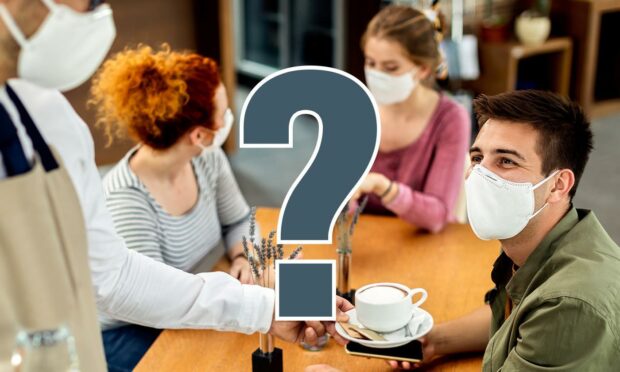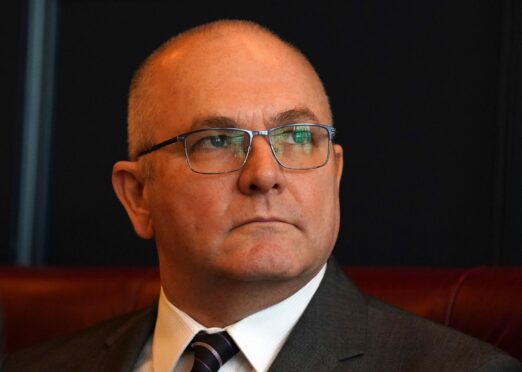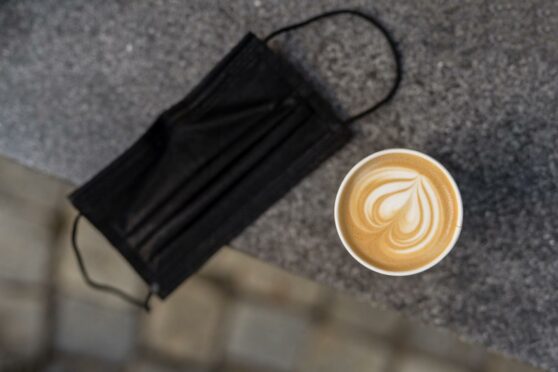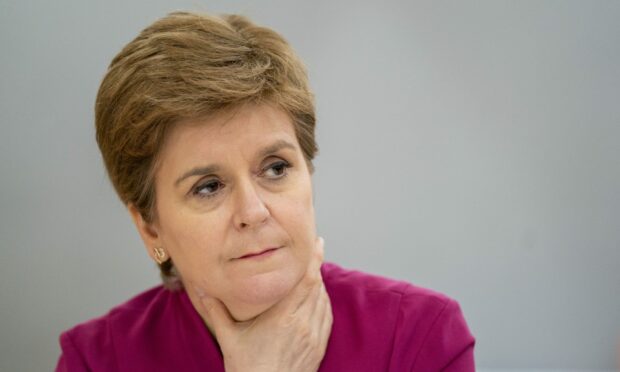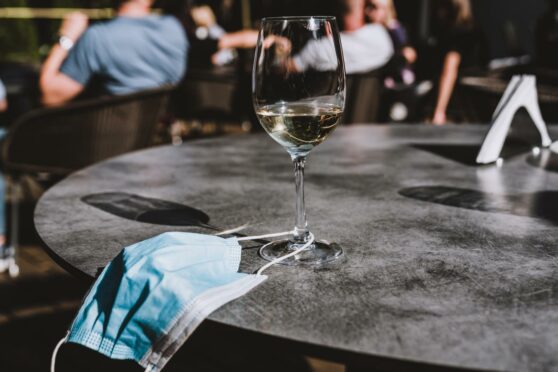The legal requirement to wear face masks in public spaces in Scotland has now been lifted, meaning those venturing to local hospitality venues don’t have to wear a mask inside any more.
While wearing face masks has been scrapped from shops, public transport and indoor settings, individuals are still being encouraged to wear them and the rule will remain as “guidance”.
Some business owners may still ask that customers continue to wear face coverings while in their establishments, despite it not being a legal requirement.
And this poses some questions, one being “what happens if I don’t want to wear a mask but a hospitality venue asks me to?”
Can hospitality venues ask this of you?
Andy and I caught up with some experts in the field ahead of the changes including, Leon Thompson, executive director of UKHospitality Scotland, and Scottish Hospitality Group spokesperson Stephen Montgomery.
“It will ultimately be down to businesses to put out that message and ask people to wear face coverings if they feel that it’s the most appropriate thing for their venue,” Mr Thompson explained.
“A business can choose to ask customers to wear face masks, in a similar way that they can also require a dress code, accept over 21s only, etc, as long as it does not contravene equalities legislation.”
However, as it is only be guidance rather than a legal requirement, it will be “much harder” to enforce.
He went on to say: “It’s obviously much harder to police anything once people have come inside the venue. But as it’s not a legal requirement, it will be very difficult for a business to enforce it.
“Some places may well be able to stop people at the door if they have security guards or that kind of thing. But if it’s a tea room, then it might become more problematic.”
Mr Montgomery carries the same view on the topic.
He believes that since we have all become accustomed to stricter hygiene measures over the last two years, it is something that should continue.
“Some hospitality venues may also choose to keep taking customer details or mandate face masks, and that will be a choice for them to make for themselves,” Mr Montgomery said.
Relief and reservations: Scottish hospitality figures weigh in on the use of face masks
“Hospitality is a safe environment for people to socialise in and I think we need to work hard as an industry to ensure the public trust in hospitality is restored.”
What are the repercussions?
Like Mr Thompson, Mr Montgomery believes there will be some businesses that will encourage customers to wear face coverings.
Mr Thompson says this has been the case in England on some occasions.
He added: “In England at the moment, it appears to be that businesses are asking customers to wear face coverings if the business wants to do that.
“A business could technically refuse a customer service if they are not wearing a face mask. However, UKHospitality has not come across this as an issue.
“In practice, it is usually something like ‘we encourage the use of face masks’ rather than a hard-line refusal policy.”
Mr Montgomery added: “As we edge closer towards normality, personal choice over face coverings will become the norm. If staff or customers feel safer wearing a face covering, hospitality venues should respect that that is their choice to make.
“Confrontation between a customer and a staff member should never happen, but we have had occasions where customers claim to be exempt from wearing a face covering.
“Staff have had to accept this and have been asked not to challenge the customer to avoid potential conflict. Hospitality should be a place where people come to enjoy themselves and have fun.
“The Scottish Hospitality Group hopes that by making face coverings guidance rather than law, any issues that could arise will be taken away.”
Goodbye face coverings
Mr Thompson believes people are ready to say goodbye to face coverings due to wearing them for so long during the pandemic.
He says that the real challenge for hospitality has always been the impact it has had on communication between workers and customers.
“People do like to be welcomed with a smile when they go into hospitality venues rather than seeing somebody wearing a face mask. But clearly, we understand that as numbers are still high.
“The coverings are staying in place for another two weeks and if it makes a difference then that has to be good.”
Mr Montgomery added: “While the continuation of face coverings is disappointing, the Scottish Hospitality Group understands that public health must be the Scottish Government’s top priority.”
A Scottish Government spokesperson said: “The return to normality must go hand in hand with a continuing determination to look out for and after each other.
“We will continue to recommend the wearing of face coverings in indoor public places and on public transport and continue to advise individuals and organisations to adopt sensible public health behaviours.
“Everyone has a part to play in ensuring a safe and sustainable recovery so we are asking people to continue to follow public health advice on getting vaccinated, testing when appropriate, following good hygiene practices and keeping rooms ventilated.”
